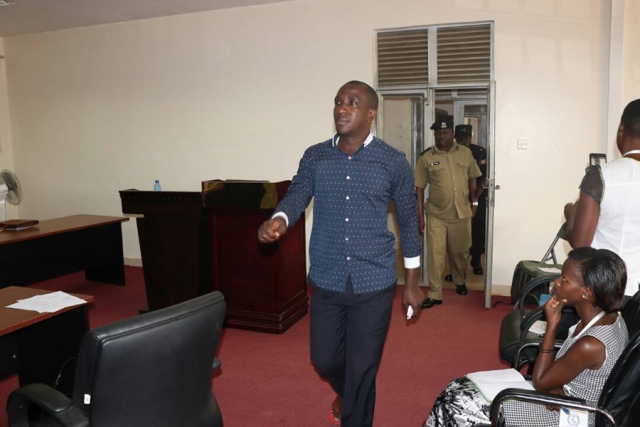The East African Development Bank (EADB) in partnership with the British Council and the Royal College of Physicians (London), has completed a week long Oncology Training under the EADB Medical Training and Fellowship Programme for 42 doctors from Kenya at Ole Sereni Hotel.
The current cascade is geared towards boosting the medical fraternity capacity in fighting noncommunicable diseases in particular cancer and neurological disorders in East Africa.
The 42 doctors from Bomet, Homabay, Isiolo, Kitui, Mandera, Marsabit, Kwale, Meru, Murang’a, Nyamira, Trans-Nzoia, Turkana, Vihiga, Kirinyaga, Nakuru, Wajir, Tana River, Nairobi and Kakamega counties representing a total of 19 counties were trained on acute cancer presentation triage and management of cancer symptoms under the tutelage of Prof. Walter Mwanda, Course Convener for Oncology for Kenya, Dr. Ruth Board from the Royal College of Physicians & Trainer Doctors.
The doctors join their predecessors making a total of 394 doctors across the four East Africa countries who have been trained since the inception of the program in 2016. EADB METAF program intends to train 600 East African physicians by 2020.
On a letter read during the closing and certification ceremony of the Oncology Training, Ms. Vivienne Yeda, EADB’s Director General wrote that, “The burden of disease and particularly the prevalence of non-communicable diseases (NCDs) is a growing concern in the region. NCDs such as cardiovascular diseases, cancers, diabetes, and chronic respiratory diseases, are now the leading cause of death in most regions of the world. Of the most pressing NCD concerns, the burden of cancer has been increasing in Africa.”
“The partnership with the British Council and the Royal College of Physicians brings 500 years of medical experience, global reach and programme quality and expertise that is comparable to few. For Kenya this cohort brings to life the core aim of this programme. You as the doctors working in the counties were the primary focus of the programme. We believe that you will interact and challenge the content and approach of the training, giving feedback based on your contextual realities, “read the letter.
The training comes at a time when about 50 Kenyans die daily from various forms of cancers and of these, 80-90% arrive in hospital too late. This trend is common across East Africa and is associated with lack of treatment facilities and expertise for treatment, prevention and early detection. Kenya has a population of about 50 million people.The ratio of doctor to population is at 1:17000 with only 17 cancer specialists and 2 palliative care specialists covering the entire population.

“We are pleased that the partnership with EADB and the Royal College of Physicians brings global expertise into the East African Region and will lead to a rich exchange of skills, expertise and experience. The programme will lead to better health for the people of East Africa,” said George Kogolla, Director Programmes and Partnerships at British Council.
Dr. Ruth Board from the Royal College of Physicians added that, “We are proud that we have this opportunity to use our expertise to support our colleagues in the East African region. This programme is an excellent example of the Royal College of Physician’s aim to improve care for patients and to develop physicians throughout their career by increasing access to high quality postgraduate training.”
The ratio of doctor to population is at 1:17000 with only 17 cancer specialists and 2 palliative care specialists covering the entire population.
“We are pleased that the partnership with EADB and the Royal College of Physicians brings global expertise into the East African Region and will lead to a rich exchange of skills, expertise and experience. The programme will lead to better health for the people of East Africa,” said George Kogolla, Director Programmes and Partnerships at British Council.
Dr. Ruth Board from the Royal College of Physicians added that, “We are proud that we have this opportunity to use our expertise to support our colleagues in the East African region. This programme is an excellent example of the Royal College of Physician’s aim to improve care for patients and to develop physicians throughout their career by increasing access to high quality postgraduate training.”





